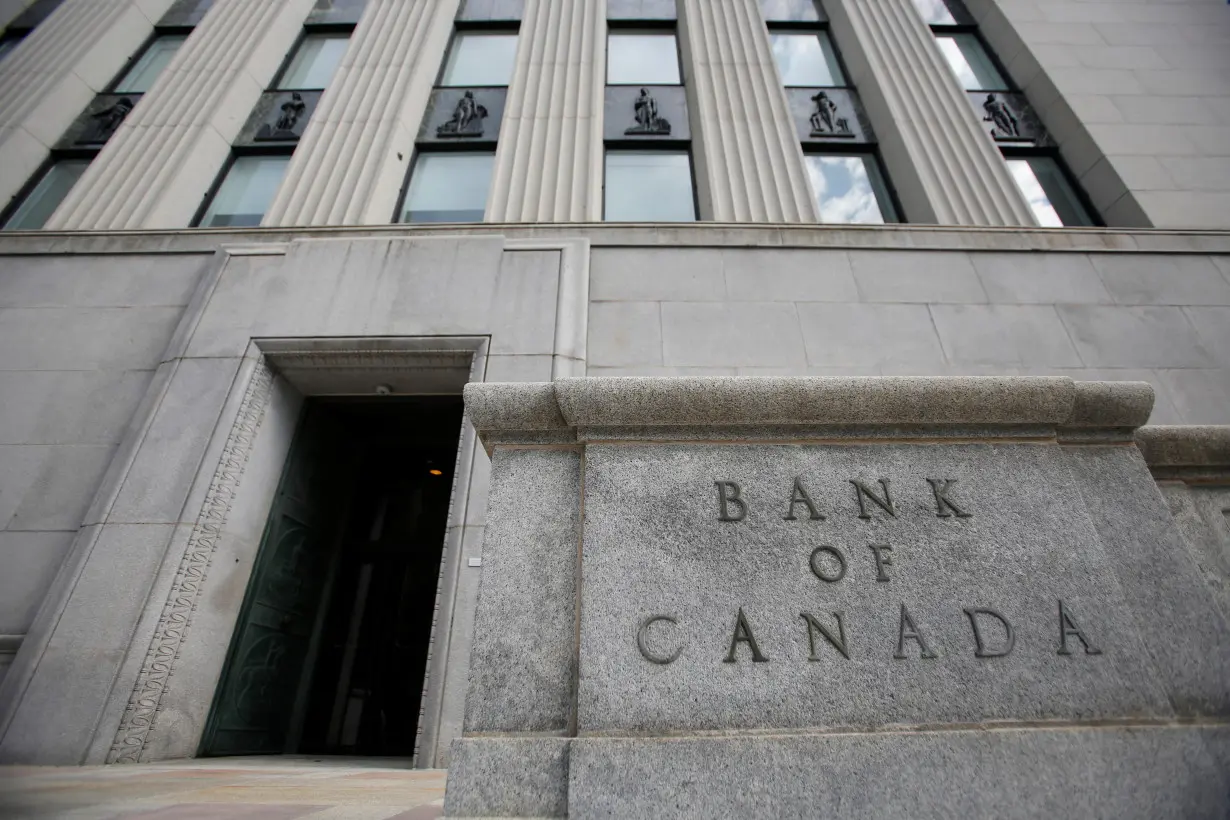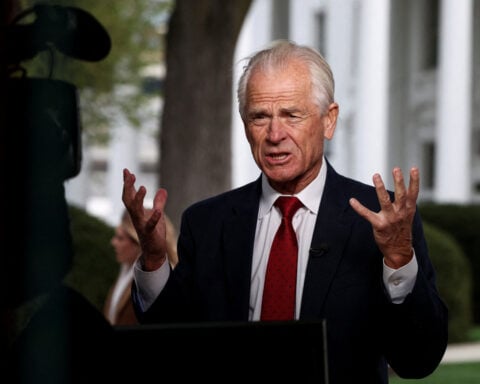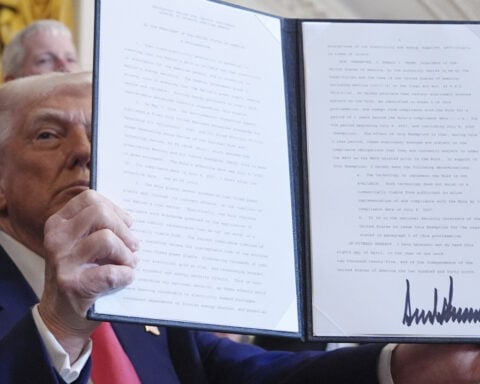By Mumal Rathore and Indradip Ghosh
BENGALURU (Reuters) - The Bank of Canada will wait until at least June to cut its key interest rate as price pressures remain sticky, according to a firm majority of economists in a Reuters poll, who said the timing of the first cut could be later than they expect.
Despite the economy slowing because of the BoC's 475 basis points of rate hikes, progress on inflation has remained uneven. The latest data showed consumer prices rose 3.4% year-on-year last month from 3.1% in November, above the central bank's target of 1-3%.
That, alongside high wages and elevated core inflation, has weakened the case for an early rate cut. BoC Governor Tiff Macklem indicated last month "sustained downward momentum" in core inflation was required for a pivot.
All 34 economists expected the BoC to hold its overnight key interest rate at 5.00% on Jan. 24 and in March and around two-thirds or 22 of 34 survey respondents forecast it would be June or later before the central bank cuts rates.
The other 12 predicted the first rate cut in April, in line with market expectations.
"After hinting at a pause in the tightening cycle in early 2023, the Bank was forced to renege after inflation proved stubborn and the housing market roared back to life," said Sal Guatieri, senior economist at BMO Capital Markets.
"The Bank won't make that mistake again. Moreover, reversing course prematurely risks losing credibility if inflation stays above target."
A strong 76% majority of economists, 13 of 17, who answered an additional question said the timing of the first rate cut was more likely to be later than they expect. Only four said earlier.
Survey medians showed the BoC would cut rates by a cumulative 100 basis points this year to 4.00%, the same as market pricing, with 13 of 34 expecting the rate to be lower than that by end-2024 and seven expecting a higher rate.
Those predictions were shallower than market pricing of around 150 bps of rate cuts by the U.S. Federal Reserve which has the support of brighter economic conditions than the BoC.
Twelve of 15 economists said the magnitude of rate cuts by the BoC this year would more likely be smaller than they expect. Three said bigger.
"While evidence is building higher interest rates in Canada have served their purpose of reining in price growth, BoC officials have remained cautious about concluding enough has been done," said Claire Fan, economist at RBC.
"Near-term inflation expectations among consumers are still relatively elevated. And the consequences of easing too soon are still too large to ignore."
Although inflation was expected to ease over coming quarters, it was predicted to remain above 2% - the mid-point of the central bank's target - until at least 2026.
Despite heightened geopolitical risks, 11 of 15 economists said the risk of a significant resurgence in inflation over the coming six months was low.
The inflation outlook was in line with the latest BoC business survey, which also showed 61% of consumers expecting a recession over the coming year as high interest rates hit consumer spending.
But the growth outlook in the Reuters poll painted a better picture for Canada's economy.
After contracting 1.1% in Q3, economic activity was expected to have grown 0.6% last quarter. Growth was predicted to average 0.5% this year, slower than 1.1% last year, before rebounding to 2.0% in 2025.
Only a handful of economists expected a recession in 2024.
(For other stories from the Reuters global economic poll:)
(Reporting by Mumal Rathore and Indradip Ghosh, Polling by Vijayalakshmi Srinivasan and Maneesh Kumar; Editing by Chizu Nomiyama)

 Trump has begun another trade war. Here's a timeline of how we got here
Trump has begun another trade war. Here's a timeline of how we got here
 Canada's leader laments lost friendship with US in town that sheltered stranded Americans after 9/11
Canada's leader laments lost friendship with US in town that sheltered stranded Americans after 9/11
 Chinese EV giant BYD's fourth-quarter profit leaps 73%
Chinese EV giant BYD's fourth-quarter profit leaps 73%
 You're an American in another land? Prepare to talk about the why and how of Trump 2.0
You're an American in another land? Prepare to talk about the why and how of Trump 2.0
 Chalk talk: Star power, top teams and No. 5 seeds headline the women's March Madness Sweet 16
Chalk talk: Star power, top teams and No. 5 seeds headline the women's March Madness Sweet 16
 Purdue returns to Sweet 16 with 76-62 win over McNeese in March Madness
Purdue returns to Sweet 16 with 76-62 win over McNeese in March Madness








